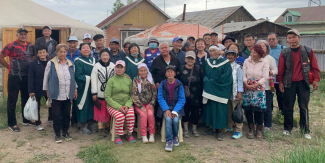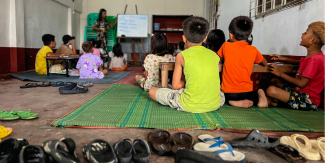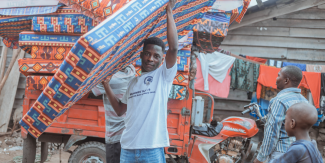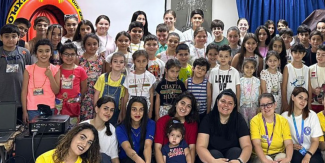SEPTEMBER 1, 2023 – SANDRA MILENA PEÑA, NCM COLOMBIA
There are many Venezuelan families arriving week after week to Colombia in search of refuge, help, and the hope of starting a new life. Many flee from the violent situations and inequality at home, but above all, they flee from hunger. If they have the financial means, families arrive by bus. But those who have enough are few. In reality, the majority come by foot—with a backpack, their newborn babies, wives, husbands, uncles, grandparents, and anyone who can get out. They carry only what they need to survive, hoping to find help along the way. Tulio, who left Venezuela with his family, shared that it was not an easy decision to leave home.
“We left everything in Caracas, in Maracaibo, in Valencia,” he says. “Many of us leave even our souls: wives, husbands, children, parents, siblings, friends, our homes. The homeland.” The journey begins at the Simón Bolívar International Bridge, the most symbolic border point between Colombia and Venezuela. According to figures from Colombia Migration, some 70,000 Venezuelans cross the bridge on foot each day. Of these, five percent do not return to their country. After the bridge comes three days of walking before reaching the Picacho—part of a paramo, or an alpine ecosystem above the tree line, that spans more than 550 square miles. This is the place most feared by Venezuelan migrants, who come from coastal regions and do not know this beautiful and dramatic landscape. On the paramo, they suffer intense cold and very strong winds.
Across Colombia, Nazarene churches are responding to those who have made the journey. From providing support in hospitals to partnering with organizations who provide immigration aid, they are working together with those who have come in the name of Christ.
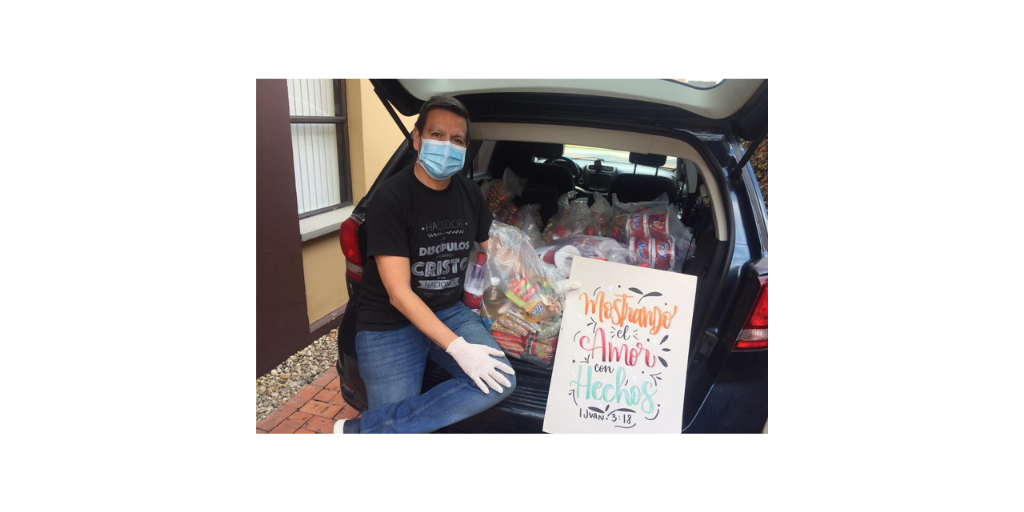
A significant percentage of the Venezuelan population works in the informal sector where they face unsafe conditions and have little protection. The pandemic further complicated the situation, restricting work possibilities, which increased the needs considerably. All these facts led us to question the church’s role while facing such a complex time and so much need. The Hechos 29 (Acts 29) Nazarene church took action thanks to a statement on Facebook and the diligence of the pastor regarding a great need of the Venezuelan migrant population in the village of Fagua. In this small village alone, there are more than 50 families in a state of vulnerability and extreme poverty. After understanding the needs, members of the church contributed to the purchase of items such as diapers, clothes, shoes, blankets, and more. The church was able to deliver items required to meet the basic needs of those who were living there, bringing a moment of hope in the midst of the pandemic. When the church visited the community again, the group gathered details about those who were living there, returning regularly and establishing further connections as well as sharing the Word of God.
When people move away from their countries, needs arise that make their stay a little more complex. Many of the Venezuelans who arrive in our area do not have documents, nor legal permits, which are important to be able to access a formal job, health services, and schools for children, among other things. And we as a church wondered: How can the church help at this point? We understood that we were not going to make it on our own, that we needed help to further reach the population, and that together we could create a solution to the bigger problem rather than just supplying primary needs.
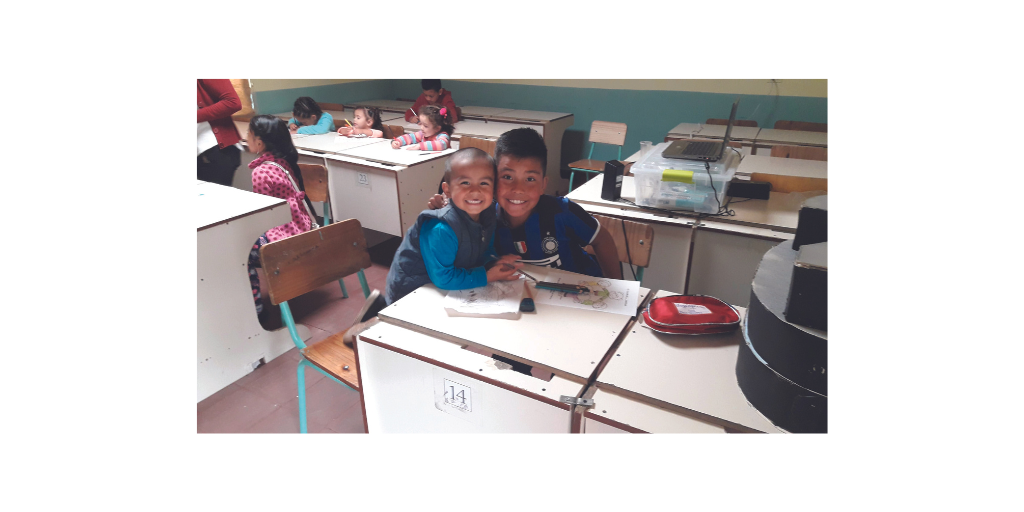
Partnership was key. While NCM provided experience, training, and support, many other organizations were also engaged in the work. So, the local Nazarene church took action to contact local mayors in the area, governmental organizations, and foundations. These organizations have been the essential units in finding the solution to this situation thanks to their management and availability. They have been great allies and help for the immigrant population. As a result of this support, more than 200 families have been legalized. Now, they have the necessary documents and permits to work, with access to school for their children, access to free health care, programs for pregnant mothers, and government aid programs for mothers who are heads of households. Many have decided to stay in Colombia; others have decided to return to their country. As they go, they take with them spiritual tools to continue the journey with Christ.


